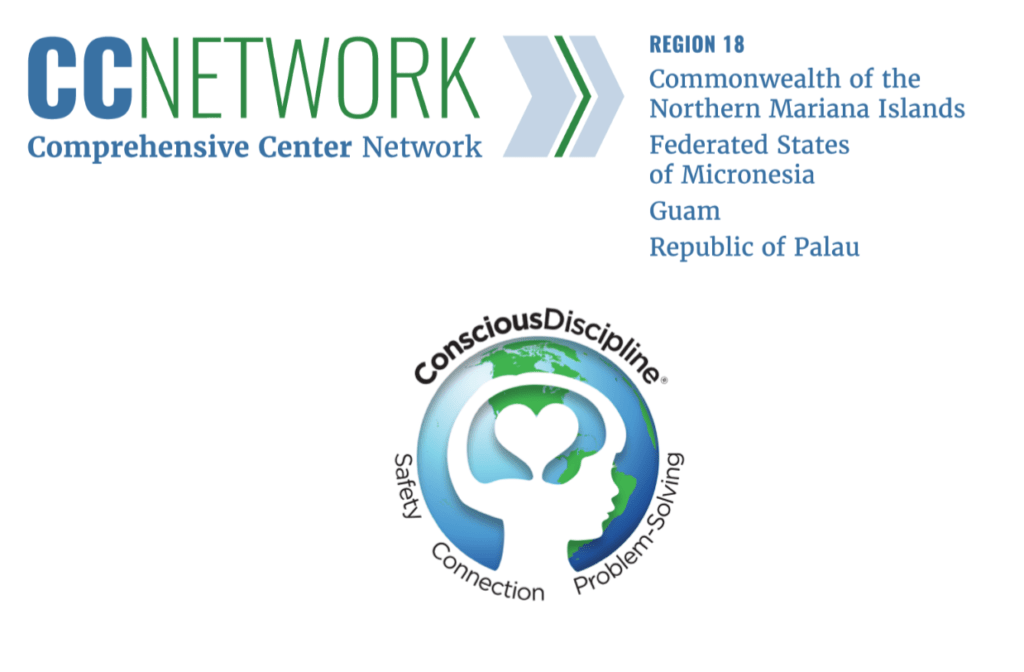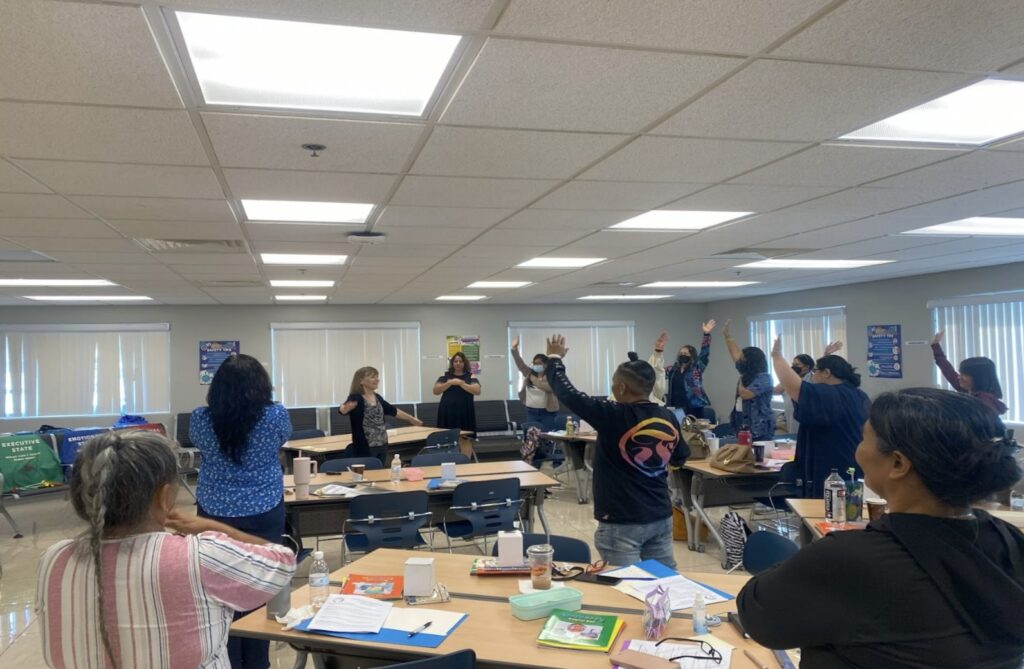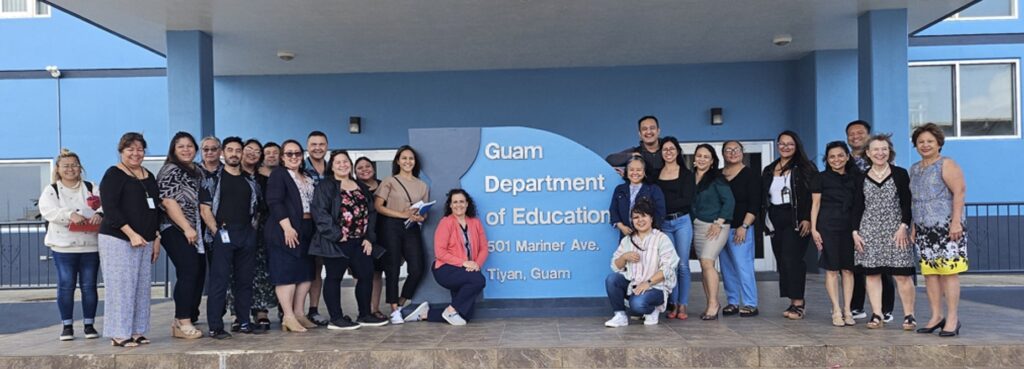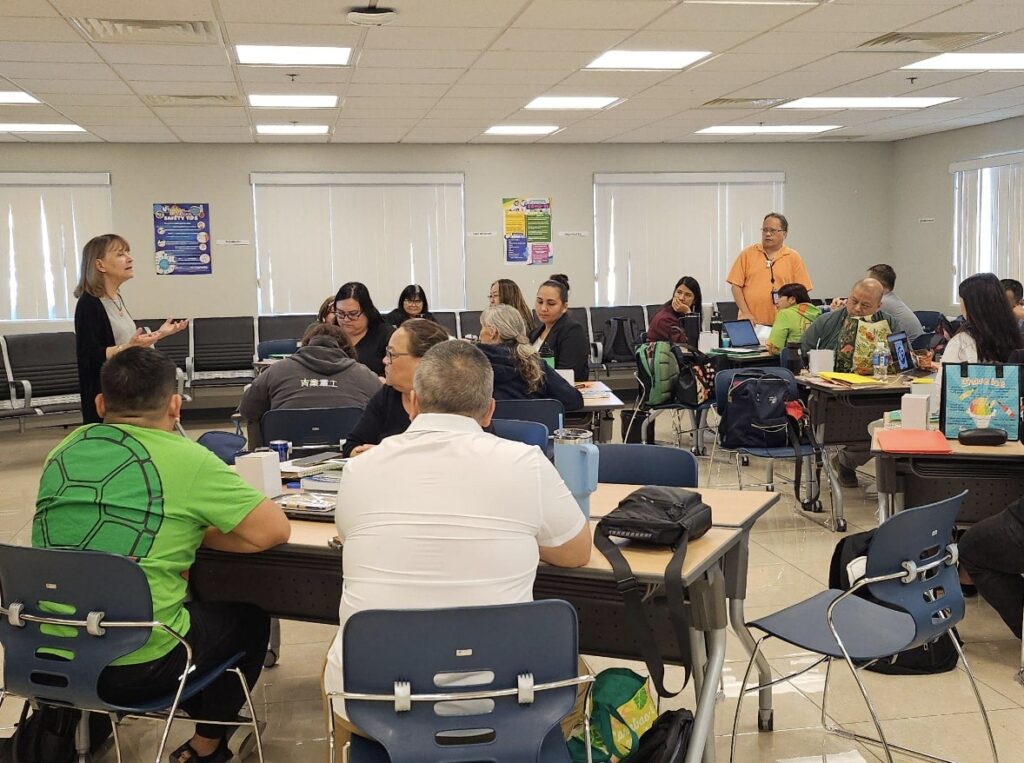February 5, 2024
Building Capacity Amongst Guam Early Childhood Educators with Conscious Discipline Strategies

Over the last five years through the COVID Pandemic, approximately 500 Guam Department of Education’s Early Childhood Education educators have been involved in the Region 18 Comprehensive Center’s Guam: Scaling & Strengthening Guam Public Prekindergarten Project. The Early Childhood Educators have gone through a series of professional development to assist them in engaging young children from birth to age 8 in the development of a child’s social and emotional development. The initial professional development began with the first Cohort back in January 2020, when Ms. Amy Speidel, Master Instructor, presented to about 150 ECE educators in the Conscious Discipline strategies. With the onset of the COVID Pandemic in March 2020, the follow-up training series took a turn and shifted to a virtual platform in May and July 2020, respectively. The first thing that you may asked, is, “Was this an approach that would impact the ability for the ECE educator to bring these strategies to the classroom?” And the answer was a resounding “Yes”, as the Guam Department of Education opened the SY 2020-2021 with three instructional approaches to reach all students in the district. During SY 2021-2022, the scaling of the instructional practice began with additional ECE educators going through the virtual Conscious Discipline Training. By SY 2022-2023, there have been over four hundred Early Childhood educators who have been trained in Conscious Discipline.
The principles of strengthening an Early Childhood Education Program is the balance of the four developmental stages of young children, which include intellectual, social, emotional and physical development. Through the training of ECE teachers on Conscious Discipline strategies, ECE Teachers are now equipped to address the strategies such as, Choices, Empathy, Power and Skill of Assertiveness and Encouragement, as well as, effective strategies in working with families and their children. The professional development was aimed to increase the knowledge and skills of Early Childhood educators who shape children’s Social and Emotional Learning (SEL) during the first eight years of life.

Engaging in Conscious Discipline Strategies
How important is it to hear the voices of our Early Childhood educators about the impact on Conscious Discipline and how these skills will be used in early learning environments? Two participants who attended the January 2023 Conscious Discipline Training series share their thoughts. Ms. Jonilin San Nicolas, a teacher at MA Ulloa Elementary School, stated that “The training provided great insight into conscious discipline. One immediate change since the training I’ve incorporated into my classroom is not using the common phrase “I like the way…” and replacing it with “If you need an example look at…” It helps students look to their peers for encouragement on how to behave and provides a model. I’ll be sharing at the upcoming faculty meeting/PD about Composure and the Pinwheel breathing activity plus about Assertiveness and the M.A.P method. Another participant, Ms. Marchelle Sablan, stated, “The training should be available for the whole school community and parents/caretakers too. Amy Speidel has a wealth of knowledge and experience we can all learn from and apply in our classrooms and at home. As she was presenting, I could hear myself and it was a reminder about being more mindful about my words and actions and the effect it may have on my students and my children.” Another participant, Ms. Patricia Roman, 2nd Grade Teacher, JQ San Miguel Elementary School stated, “Having participated in R18CC: Guam PreK Project’s SEL: Conscious Discipline Training on January 19, I learned that creating a classroom environment that is nurturing enough to build connections and form relationships is essential to ensuring that we are safe and that we can adapt to changing situations. I have shared with members of my teaching community that we can use different strategies in the classroom to encourage student engagement and build trust. Some of the interactions mentioned from the training included breathing techniques (for example, using a pinwheel) to help regulate our emotions when it comes to stress or anxiety. Being able to initiate self-control allows us as teachers to make conscious decisions that will affect the way we interact with our students and with other colleagues.”

Now, let’s fast forward to 2024 and the Cohort 5 participants. In January 2024, approximately 90 Early Childhood Educators, District Mentors, and Elementary Counselors participated in this year’s Conscious Discipline Training. What was essential in building the capacity of not only the Early Childhood educators but to also include the Elementary Counselors to create a triad of support. As Early Childhood educators promote a healthy and safe learning environment within the classroom setting, the District Mentors/Instructional Coaches, as well as the Elementary Counselors will be there to reinforce the Conscious Discipline strategies and concepts to assist the classroom teacher. Ms. Brenda Porter, one of the Guam Department of Education’s elementary counselors indicated, “The Conscious Discipline training was interactive and fun. I learned ways to help regulate my students and myself. The S.T.A.R. technique is easy to remember: Smile, Take a deep breath And Relax. I plan to teach my students this technique so they can learn to relax.” Ms. Amy Speidel, Master Trainer for Conscious Discipline stated, “It is important to bring sense and meaning to what children do.” Ms. Speidel also indicated that, “It has been a personal joy partnering with the teachers and coaches on Guam. Their commitment to learning Conscious Discipline skills to bring best practices for children and families has the potential to build stronger and healthier relationships within the schools and communities.” Ms. Genine Rocco, the Early Childhood Education Teacher Specialist, indicated that “Training over the last several years will equip the Guam Department of Education’s Early Childhood educators with effective strategies to support the development of young children’s social and emotional learning. Having the District Mentors/Instructional Coaches, as well as, the Elementary Counselors will help to sustain the principles of Conscious Discipline.”

Ms. Amy Speidel sharing with participants concepts of Conscious Discipline.
Participants engaged in an activity led by Ms. Amy Speidel.

For further information on this project, please contact Eloise R. Sanchez, Senior Program Specialist in Social-Emotional Learning and Early Learning Programs (sancheze@prel.org or 671.687.5202) or Ms. Kathlina Martin, Migrant Education Specialist, at martink@prel.org at Pacific Resources for Education and Learning.


